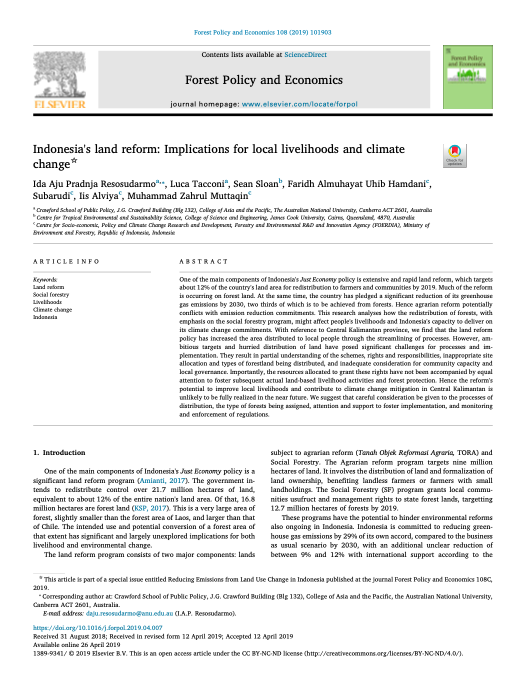Elsevier is a world-leading provider of information solutions that enhance the performance of science, health, and technology professionals.
All knowledge begins as uncommon—unrecognized, undervalued, and sometimes unaccepted. But with the right perspective, the uncommon can become the exceptional.
That’s why Elsevier is dedicated to making uncommon knowledge, common—through validation, integration, and connection. Between our carefully-curated information databases, smart social networks, intelligent search tools, and thousands of scholarly books and journals, we have a great responsibility and relentless passion for making information actionable.
Members:
Resources
Displaying 21 - 25 of 1605Beyond land cover change: towards a new generation of land use models
Land use models play an important role in exploring future land change dynamics and are instrumental to support the integration of knowledge in land system science. However, only modest progress has been made in achieving these aims due to insufficient model evaluation and limited representation of the underlying socio-ecological processes. We discuss how land use models can better represent multi-scalar dynamics, human agency and demand-supply relations, and how we can achieve learning from model evaluation.
Indonesia's land reform: Implications for local livelihoods and climate change
One of the main components of Indonesia's Just Economy policy is extensive and rapid land reform, which targets about 12% of the country's land area for redistribution to farmers and communities by 2019. Much of the reform is occurring on forest land. At the same time, the country has pledged a significant reduction of its greenhouse gas emissions by 2030, two thirds of which is to be achieved from forests. Hence agrarian reform potentially conflicts with emission reduction commitments.
Storytelling climate change – Causality and temporality in the REDD+ regime in Papua New Guinea
Climate change is shaped and understood through assumptions of causality and temporality that enable and constrain feasible approaches to environmental governance, approaches that may reproduce inequalities. Reducing Emissions from Deforestation and Forest Degradation (REDD+) provides an entry point to examine the intersecting assumptions and politics around climate change and how it is managed. Actors in the REDD+ regime promote particular assumptions about the causality and temporality of climate change, which are often privileged over local ways of being and knowing.
Who governs here? Informal resource extraction, state enforcement, and conflict in Ghana
Over the past two decades, “illegal” natural resource extraction has become a significant driver of environmental change and social conflict across the Global South. In response, numerous Sub-Saharan African states have engaged in governance reforms that heed calls to securitize – or, establish and consolidate state control over – natural resources. In Ghana, securitization has served to entrench the informal economy as domestic producers, marginalized in the process of reform, continue to utilize non-state institutions to maintain access.
Effect of climate change on land suitability for surface irrigation and irrigation potential of the shallow groundwater in Ghana
Estimating the potential land resources suitable for irrigation and evaluating the possible impact of climate change on land suitability is essential for planning a sustainable agricultural system. This study applied a GIS-based Multi-Criteria Evaluation (MCE) technique to evaluate the suitability of land for irrigation in Ghana for a baseline period (1990 to 2010) and future time horizons 2050s (2041 to 2060) and 2070s (2061 to 2080).





